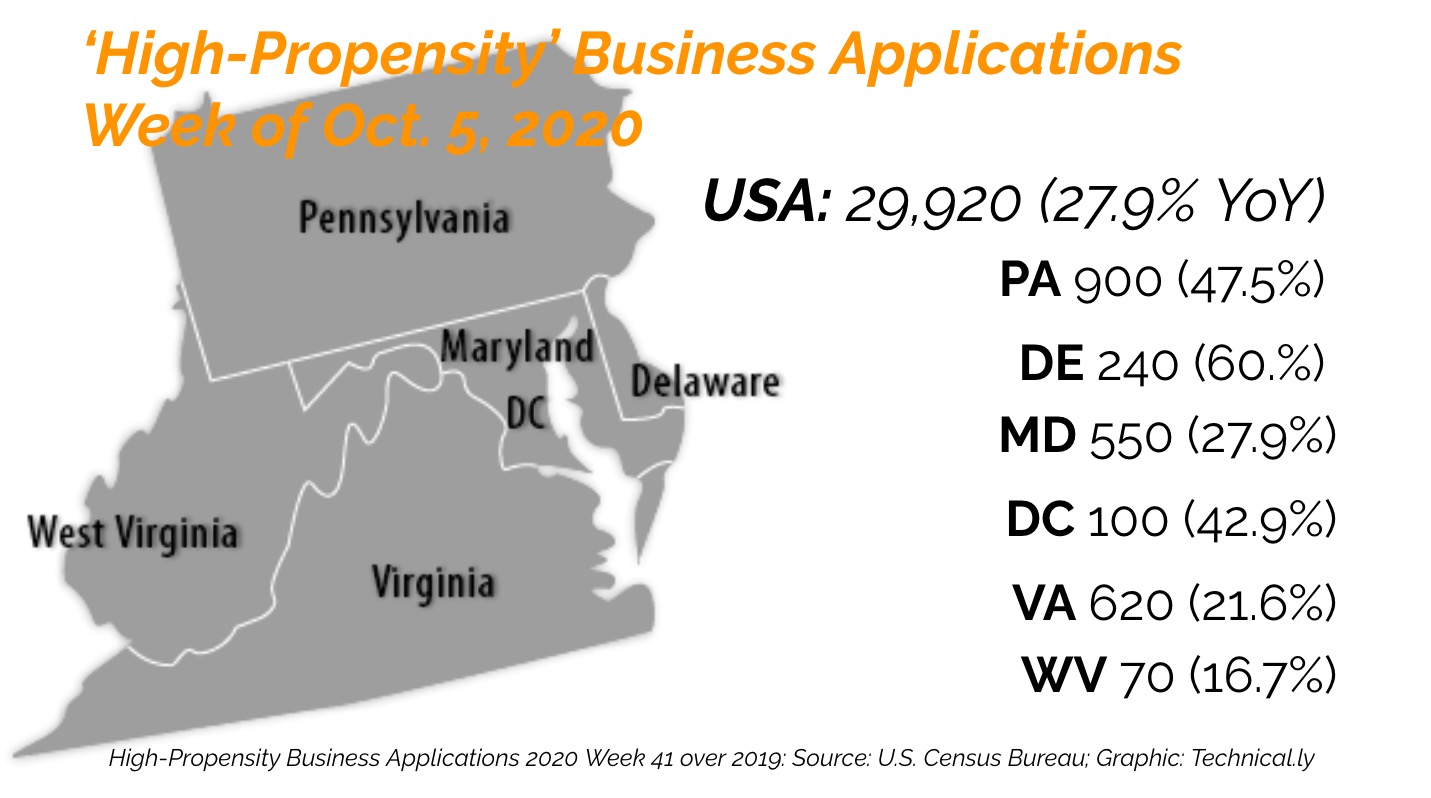One of the biggest misunderstandings of how entrepreneurship works is to assume recessions immediately spark new companies. They usually don’t. But this may be one more way 2020 is unlike no other.
The most important economic role that recessions play is to cull underperforming firms and industries. We do want workers to take the painful steps to transition out of dying sectors and into growth ones — though they likely need more support to get there. Though we do see big lumbering giants call it quits during economic downturns (like, say retail chains), recessions are particularly brutal to smaller firms.
The American economy is on a decades-long aging toward larger and older firms. Entrepreneurship has been declining for decades and recessions are typically unkind to the new and the small.
Though you may know of a few in-recession stories — General Motors, Airbnb and, sure, us at Technical.ly — these just aren’t really representative. Far more commonly, we shelter in place during recessions and only later during economic upswings do rates of entrepreneurship increase.
For example, during the Great Recession, we saw a massive shuttering of small firms and declines in new business applications. So far in 2020, we are absolutely seeing plenty of business closures — but we are also seeing a sudden and unexpected surge of new incorporations.

Every state in the union is seeing a surge in new business applications in 2020. As the Economic Innovation Group put it: “Total applications recorded from July through September were the highest quarterly amount on record.”
It seems to be continuing. This is happening at the fastest rates in the U.S. South and the Northeast — including the mid-Atlantic, otherwise a fairly low-growth part of the country. Consider week 41 of 2020, the week beginning Oct. 5, the first of this month: As depicted in the graphic at the top of this story, every state in the mid-Atlantic saw at weekly filings at least 20% higher than the same week the year prior, according to U.S. Census data. That trend began in July and hasn’t stopped.
Dating back to the boom times before the Great Recession, we’ve tended to see a roughly even split between “high-propensity” and not. It’s true that in recent years, there’s been an uptick in high-propensity, but now so far in 2020, that growth has surged.
What are high-propensity firms? Well, not quite what you might expect. It’s a bucket that Census data creates to identify organization’s likely to add employees, informed by a new entity’s tax forms and specific NAICS codes — spanning industries as diverse as restaurants and manufacturing.

Now, economists and analysts can’t actually be sure what’s happening yet. We were thrown into recession this year because of a dramatic and sudden economic closure. So many shocks ensure this story is muddles. Here are three plausible reasons, all of which could play some part:
- Delayed filings: At least some of this surge is likely pent-up demand — if you were planning to file your paperwork in spring, perhaps you simply waited until the summer and fall. Though this is likely, it can’t actually explain such a large increase.
- Circumstances: It could simply be pure short-term circumstantial economic churn: acquisitions of failing firms, new LLCs set up to distribute PPE or other COVID-specific products. Maybe these are just screwing with the data, or maybe even if they do, they might last.
- Real change: I spoke to one economic development executive who pointed out that the unprecedented fiscal stimulus may have actually given some of those unemployed workers the financial confidence to pursue entrepreneurial dreams. Or perhaps this was so widespread a shock that enough of us made the long-delayed leap.
This will play out over the coming months. The most optimistic reading is that this shock is sudden, dramatic and far-flung enough that it sparks a new generation of entrepreneurship. Otherwise it could just be another strange anomaly in 2020.







